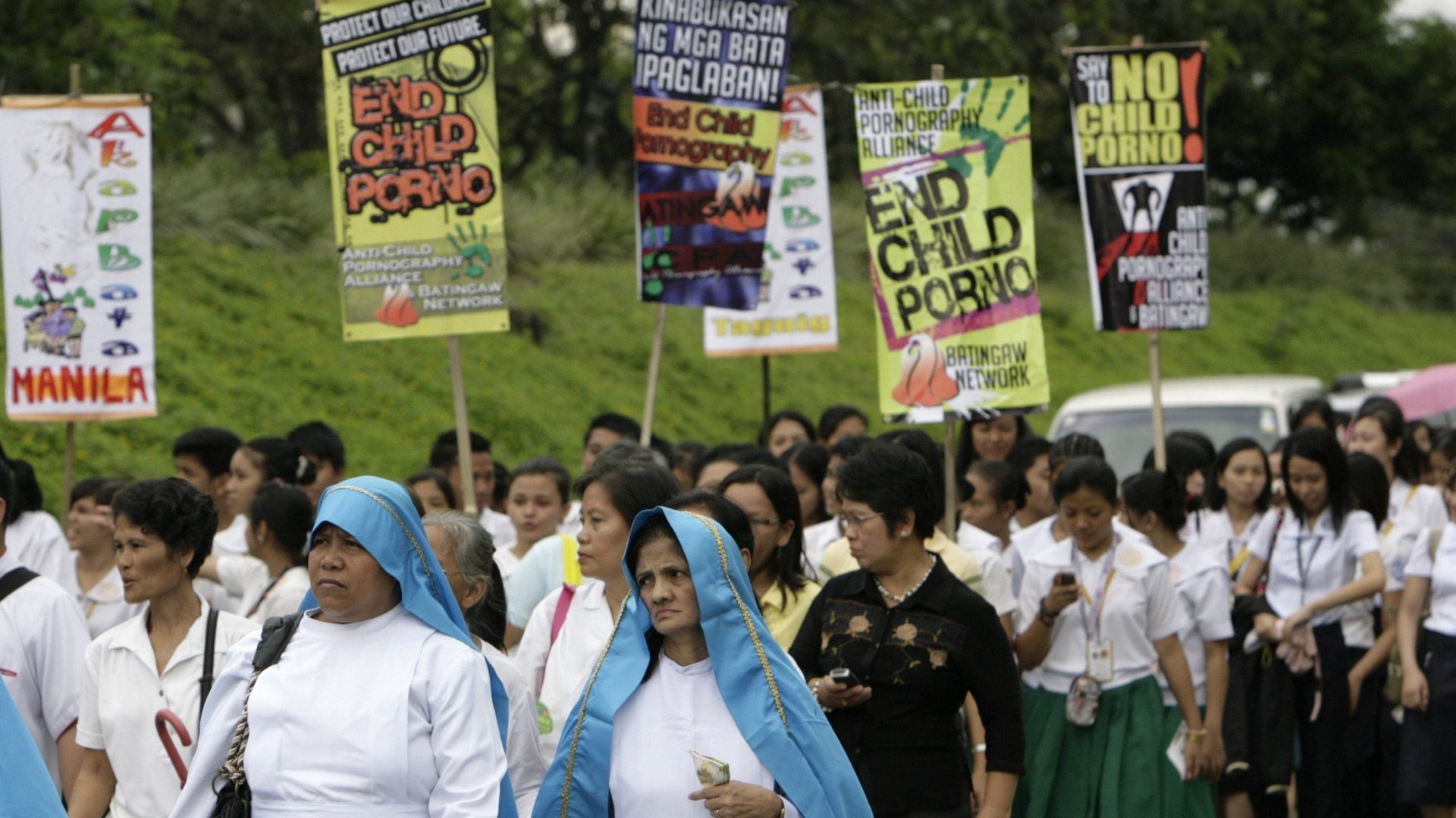Unicef calls the Philippines the “global epicenter” of live-streamed child pornography
One in four young Filipinos have been sexually violated, according to a report released this week by the UN children’s agency Unicef and the Philippine government.


One in four young Filipinos have been sexually violated, according to a report released this week by the UN children’s agency Unicef and the Philippine government.
Based on a survey of 13- to 24-year-olds conducted last year, the report found (pdf) that most of the violations happen in the children’s homes, communities, or during dates; that boys are more at risk of experiencing sexual violence than girls; and that children aged 13 to 17 experience the most sexual violence, including forced sex.
As if this weren’t bad enough, the nation has also become “the global epicenter of the live-stream sexual abuse trade,” the agency reported earlier this year. Traffickers use chatrooms and social media to offer online child sex performances, an industry that tens and thousands of Filipino children fall prey to, it added.
Cybersex dens exploiting children are found in the country’s big cities, including Manila, Cebu, and Davao. Operators live-stream and record acts from small rooms equipped with laptops, webcams, and routers.
As with chronic malnutrition and child labor—two other deep-seated problems in the Philippines—poverty is a large factor behind the proliferation of the dens. An investigation into one in the Manila slums revealed it paid local children 150 pesos ($3) to participate, and that in some cases the children were brought by their own parents.
While former president Benigno Aquino III signed into law the Cybercrime Prevention Act of 2012, which penalizes child pornography, the situation has not improved. Reported cases of live-streamed sex acts involving children increased in number from 57 in 2013 to 167 last year, according to Unicef, citing numbers from the Philippine National Police’s cyber crime unit. Most cases, of course, don’t get reported.
When current president Rodrigo Duterte was mayor of Davao City in 2014, he spearheaded investigations into online child pornography operations in the area. “I will see to it that they will suffer the consequences of the criminal act,” he said at the time (link in Filipino). The following year he also proposed reinstating the death penalty for human traffickers, saying they’re as bad as drug criminals.
So far as president, though, he hasn’t made any detailed public plans about addressing the problem, even as he’s waged an aggressive and controversial war on drugs.